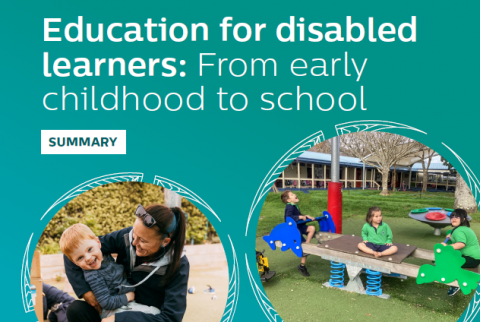New research from the Te Ihuwaka (our education evaluation centre), in partnership with the Office for Disability Issues and the Human Rights Commission, has found that education across NZ schools and early childhood services is failing disabled learners.
Disabled children have the same rights to enrol and receive a good education as other learners and we know that a quality education can change their lives. But disabled learners are being let down time and time again, and coordinated action needs to be taken now to significantly improve education for these priority learners.
Disappointingly, we found that disabled learners are often facing exclusion from education.
For example, disabled learners are being discouraged from enrolling in schools and services, are being sent or asked to stay home, and are more likely to be stood down. We found that one in five parents had been discouraged from enrolling their disabled child at a local school (one in four for early childhood) and a quarter of parents had been asked to keep their disabled child home from school.
In addition to this, disabled learners reported feeling excluded from school activities, and the research found their sense of belonging declines as they progress through education - with almost a third of disabled learners saying they do not feel they belong at school.
These outcomes reflect that schools and services are struggling.
Most troubling, teachers are not confident teaching disabled learners. We found that more than half of teachers in schools and one third of ECE teachers lack confidence in teaching disabled learners.
The research also found that nearly half of school leaders do not have a full understanding of their legal obligations to disabled learners.
We do know that providing good education for disabled learners is possible, and we did see good practice when doing this research. For example, we found schools in lower socio-economic communities and schools with high numbers of Māori students were better meeting the needs of disabled learners.
However, we need to see good practice everywhere. For this to happen, we are recommending a package of action so disabled learners in NZ thrive in education.
There needs to be strengthened prioritisation of disabled learners in early childhood services and schools, and accountability from across the education system for meeting the needs of these learners.
We also need to urgently increase teachers’ capability in teaching disabled learners and need to ensure all schools and services are striving to include disabled learners in education.
Together, the actions ERO has identified have the potential to significantly improve education experience and outcomes for disabled learners and, in turn, improve their lives.
The new research is on our website here: Education for disabled learners in New Zealand | Education Review Office (ero.govt.nz)
